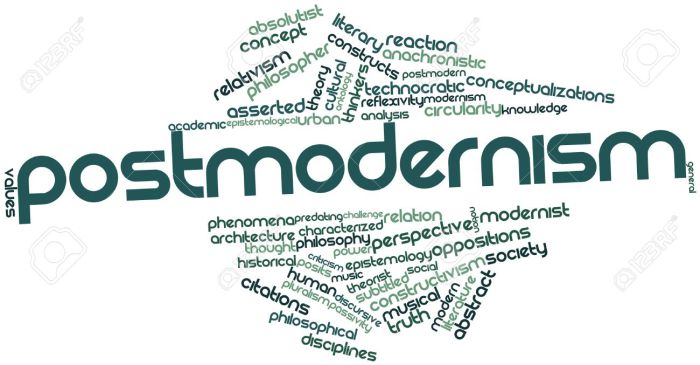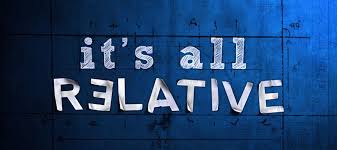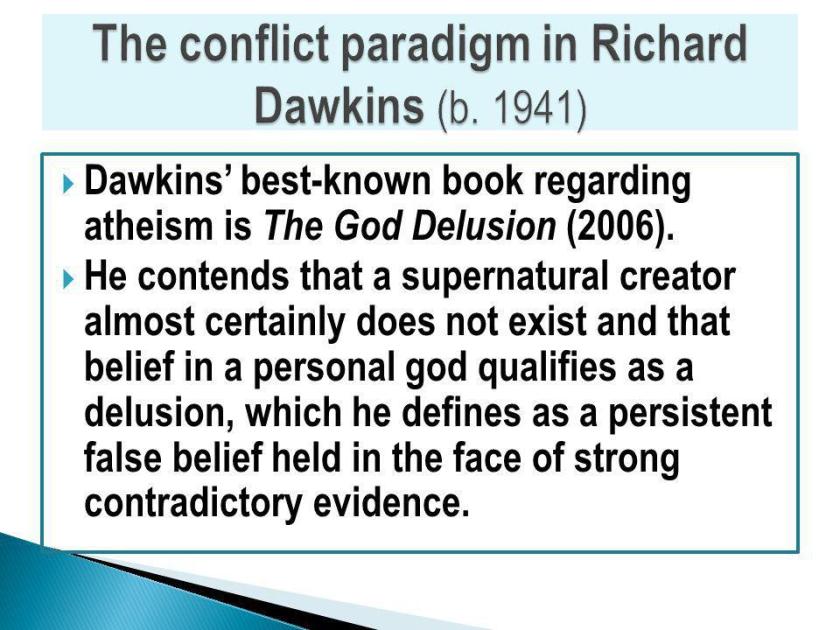“But sanctify the LORD God in your hearts, and always be ready to give a defense to everyone who asks you a reason for the hope that is in you, with meekness and fear” (1 Peter 3:15, NASB).

CHRISTIAN APOLOGETICS SEEKS TO build bridges to unbelievers by presenting reasons and evidence that Christianity is true, rational and worthy of belief. Oxford theologian Alister E. McGrath said, “…Christian apologetics represents the serious and sustained engagement with ‘ultimate questions’ raised by a culture, people, group or individual aiming to show how the Christian faith is able to provide meaningful answers to such questions. Where is God in the suffering of the world? Is faith in God reasonable?” Agnostics and atheists are quick to conclude that either God is all-loving but not powerful enough to stop the evil that exists in the world, or He is all-powerful, but not willing to wipe out evil.

Apologetics in a Post-Modern World
If everyone already belonged to one religion, apologetics might still be necessary as a way to provide believers with the best possible grounds for their faith. But clearly that is not the culture we live in. Modernism, which became popular in the late 19th and early 20th centuries, is rather difficult to pinpoint because it encompasses a variety of specific artistic and philosophic movements including symbolism, futurism, surrealism, dadaism, and others. Its basic tenet involves rejection of all religious and moral principles as the sole means of cultural progress. Consequently, it includes an extreme break with tradition. Specifically, modernism developed out of Romanticism’s revolt against the effects of the Industrial Revolution and bourgeois values.

When modernism failed to cure the ills of society—war, famine, disease, exploitation, global environmental crises—postmodernism came on the scene. Postmodernists believe there is no such thing as absolute truth; rather, truth is a contrived illusion, misused by people in power to control others. Truth and error are synonymous. Facts are too limiting, changing erratically and often. Traditional logic and objectivity are spurned by postmodernists. Traditional authority is considered to be false and corrupt. Postmodernists wage intellectual battle against traditional truth and reality. They despise the unfulfilled promises of science, technology, government, and religion.
We presently live in a deeply diverse world characterized by pluralism. Pluralism is a word we encounter all the time, but few truly understand what it implies. It has at least three primary definitions. Thoroughly exploring what we mean by pluralism will help us clarify a lot of what we encounter in contemporary society. And getting the definition clear is necessary for any apologist who wants to understand and address his or her audience accurately.
Pluralism as Mere Plurality.
The basic definition of pluralism means the state of being more than one. A rudimentary example would be choices of breakfast cereal in the grocery store. Sociologists suggest that such proliferation of choices in modern society—the characteristic of various goods, services, and ideologies—is a process they call pluralization. Although discussions about pluralism are not new, all the relevant questions need to be carefully considered. What is God like? Is God a personal being or an impersonal force of energy? If Christianity is true, does it necessarily follow that all other religions are wrong? Can so many be wrong, or are all religions at least partially or equally valid? The fact of a pluralistic world has required theologians to adopt positions regarding believers in other religions.
Today’s militant atheists are no longer satisfied with simply choosing to not believe in God. They’ve taken on the “mission” of attacking Christianity and its ardent followers as religious bigots who are elitist, narrow-minded, deluded, and exclusionary in their approach to God and heaven. Granted, worldviews are mutually exclusive of all other beliefs, but it does not mean holding a belief in one true God makes the believer an elitist. Christians do not think they are morally better than people in other religions. Because Christianity does not teach salvation through works but salvation by grace through faith, all boasting is excluded (see Romans 3:27).
Pluralism as Preference.
This second definition goes beyond mere recognition that there is more than one; rather, it affirms that it is good that there is more than one. Here pluralism moves from sociological description to ideological description. Rather than “what is,” there is “what ought to be.” Pluralism can be expressed even about ultimate questions of life and death. Someone might prefer there to be more than one philosophy, more than one ideology, more than one religion in a society because the presence of competing alternatives prevents any individual or any group from asserting unchallenged claims to truth, justice and power. Such pluralism, on this understanding, also can lead to mutual and complementary instruction from each particular point of view.
In this regard, we are all pluralists. But preferring plurality in some instances does not, of course, commit one to preferring it in all instances. Consider that some individuals prefer matrimonial pluralism (polygamy) over monogamy. Someone else might support private ownership of property while others might believe in communal ownership, or the rule of law to anarchy, and so on. We must resist the illusion that pluralism means everyone is right and no one is wrong. Pluralism is often touted on the campuses of our liberal colleges as the only way to believe. In reality, most of us are pluralistic in only some matters and definitely not pluralistic in others.
Pluralism as Relativism.
Someone might recognize a situation as pluralism: “There is more than one.” Someone else might actually prefer a situation to be pluralistic: “It’s good that there is more than one.” But this level of pluralism goes further, declaring that no single option among the available varieties in a pluralistic situation can be judged superior to the others. For example, consider the claim everything is beautiful. To hold the attitude that everything is beautiful is to see every option as good. But is this truly accurate? Even on the basic level of vanilla versus chocolate, we’re talking subjective preference not objective judgment. When it comes to flavors of ice cream, all have their merits and all should be affirmed.

This is clearly not applicable to the bewildering variety of religions. Hinduism, Buddhism, Christianity, Native religion, Islam, Wicca—all are belief systems considered “good” by their adherents. All can be labeled as “spiritual paths.” This becomes a rather sticky situation, however, when lifelong believers of these various religions are convinced that his or her belief is in fact the best of all. Interestingly, many young college students, when pressed, tend to confess that they feel they shouldn’t think that way. Atheists such as Richard Dawkins believe parents should not be allowed to force-feed their doctrine on their children. In fact, he sees this as a form of child abuse, indicating it takes away the child’s freedom to think for himself or herself.

Allan Bloom, in The Closing of the American Mind, complains that most college students today believe that everything is relative. Some are religious, some are atheist; some are to the Left, some to the Right; some intend to be scientists, some humanists or professionals or businessmen; some are poor, some rich. They are unified only in their relativism, and they take comfort in that unity. They believe relativism is vital to openness; and this is the virtue, the only virtue, to which all primary and secondary education in America has dedicated itself for more than fifty years. Therefore, openness is the great insight of modern times. The true believer is the real danger. Interestingly, the obsession that one is right no matter what has led to persecution, slavery, xenophobia, racism, chauvinism, and exploitation—not openness. The point is not to correct the mistakes and really be right. Instead, it is said that to think you’re right in the first place is wrong. This is precisely what has led to the modern-day concept that there is no way to tell good from evil!
It’s Not About Saying You’re Sorry!
Apologetics has little to do with how we understand the word apology today. Rather, it is derived from the Greek word apologia, which means to make a reasoned defense. Strong’s Exhaustive Concordance describes apologetics as “a speech in defense” or “intelligent reasoning.” Etymology indicates apologetics was originally the term for making a legal defense in ancient courts. Accordingly, as used in 1 Peter 3:15, it means “to make a defense to everyone” or “to give an answer to every man.” It is vital that we not ignore the second part of the verse, which admonishes us to defend the faith with gentleness and respect (NIV).

The question is How can believers both defend and commend their religion without needlessly offending their neighbors and exacerbating the tensions of their community? After all, apologetics can bless and apologetics can curse. When engaging in defense of the Christian faith, we must always look for the most loving approach. Peterson (2006) says in his translation The Message, “If I speak with human eloquence and angelic ecstasy but don’t love, I’m nothing but the creaking of a rusty gate. If I speak God’s Word with power, revealing all His mysteries and making everything plain as day, and if I have faith that says to a mountain, ‘Jump!’ and it jumps, but I don’t love, I’m nothing… no matter what I say, what I believe, and what I do, I’m bankrupt without love” (1 Corinthians 13:1-2, 7). It is vital that we show the ability to critique a position or argument without lambasting the other person.
Effective Apologists are Good Listeners!
Be prepared to actively listen to people with whom you are having a discussion. Seek to understand where they are coming from. Never presume to know their “character” simply because of what they’ve said or written about their religion or cultural beliefs. Let them have their say whenever they wish to speak. It is important to be wary of steamrollers, but be careful of not being one yourself. It’s better to allow them to speak too much than too little or you’ll be accused of cutting them off at the knees. Respond to what they actually said, not what you think they should have said. Try to keep them on point, however, which is not always easy.

If you’re debating them about Scripture, ask them to stay within one passage and reach a conclusion with you on that passage before moving on to another. You might not realize it, but just because you disagree with someone does not mean there’s nothing you can learn from them! Every individual has unique experiences and ideas, and you never know when their thoughts might compliment yours. Remain teachable, even from those with whom you vehemently disagree. Everybody makes mistakes from time to time. When someone points out an error or mistake on your part, do not try to cover it up. Admit to it, noting it was an honest mistake. If someone insists you’ve made a mistake when you are well-grounded in what you’ve stated, promise to check your sources and get back to them on it. It takes grace and humility to admit when you’re wrong, but people will respect you for it.
Don’t be baited by personal insults. Ad hominem attacks, which are by nature leveled against an individual rather than an argument, have unfortunately become quite common when discussing sensitive subjects such as religion. We should never repay insult with insult. Remember, Christ never retaliated against or mocked those who mocked Him.
What’s Next?
Next Monday I will present a detailed look at the classical approach to Christian apologetics. What exactly does Christianity believe? Can truth be objectively known? What are the three main arguments for the existence of God? Are miracles possible in a physical universe? Is the New Testament historically accurate? Did Jesus actually rise from the dead? We’ll also look at the hypocrisy of intolerant tolerance. For example, when our public schools shifted their policy from decidedly Christian to “neutral,” it did not take long for them to go from neutral to intolerance. Public schools have become “Christian-free zones” in the name of so-called separation of church and state. We’ve allowed our government leaders to interpret and enforce the First Amendment as freedom from religion rather than freedom of religion.
Please join me next week for Part Two of Apologetics: Defending the Faith Today.

